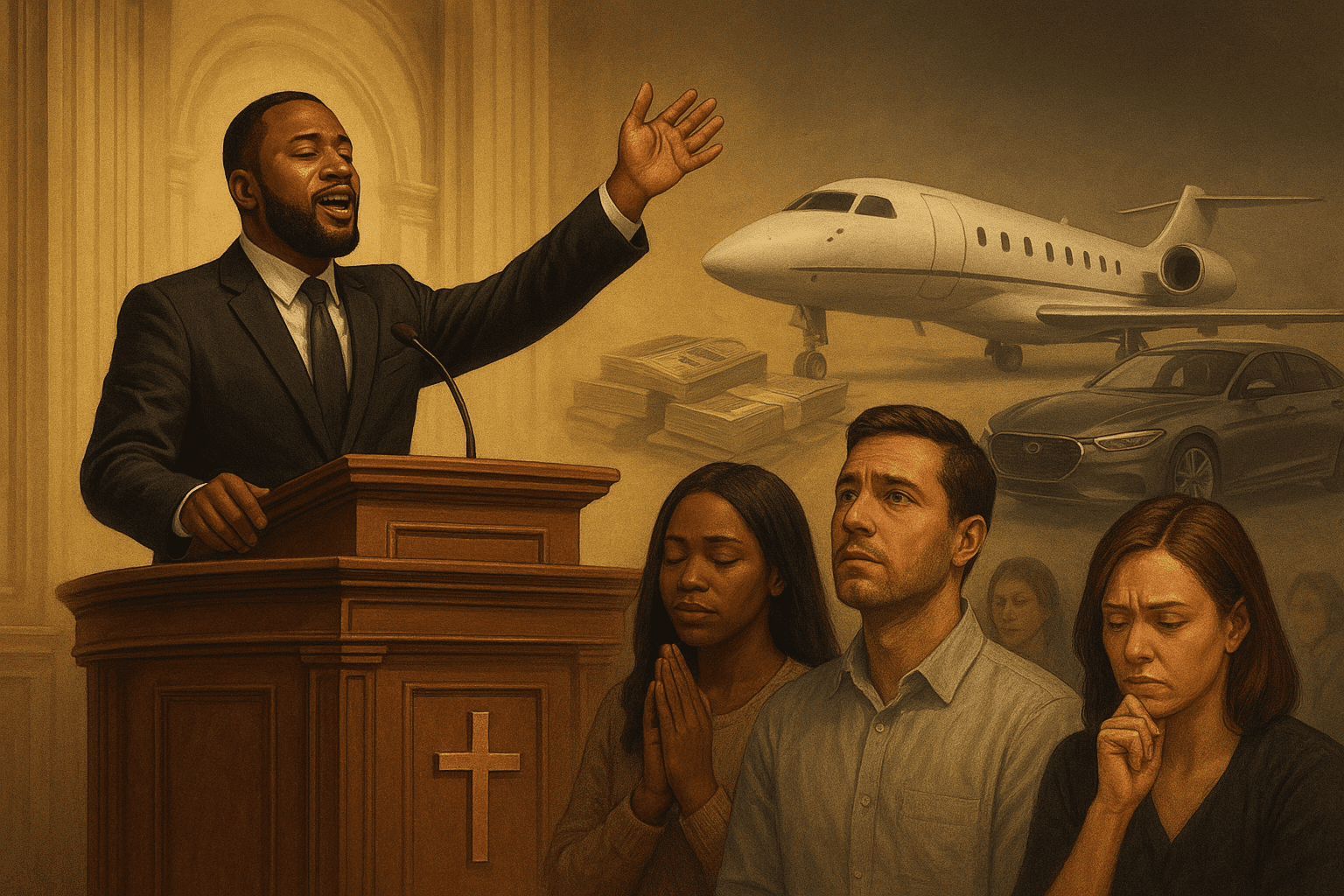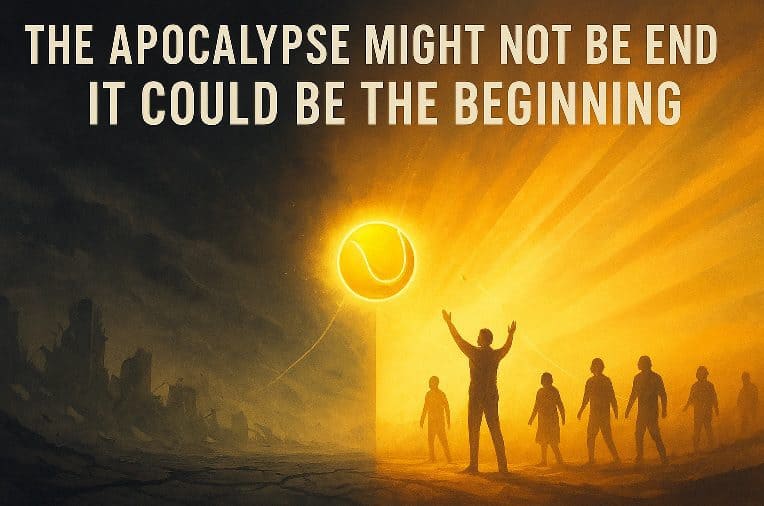Prosperity Gospel Criticism-A Critical Look
When a preacher steps onto the pulpit, we expect a message that uplifts, points people to God, and brings hope. Unfortunately the prosperity gospel, maybe unbeknown to the preacher,often does the opposite—fueling greed, encouraging fraud, and leaving broken lives behind. That’ why prosperity gospel criticism is arising.
It suffers from the classic “theatre effect‘ I talked about in another post. Just like someone leaving a Jackie Chan or Chuck Norris movie might feel ready to fight, congregants leave a sermon feeling holy and inspired—but that rush fades fast. By Wednesday, for many, the sense of spiritual empowerment is gone.

But the prosperity gospel sticks in a different way. The chase for money doesn’t vanish when the sermon ends; it lingers in minds Monday to Monday. Life becomes all about the Benjamins—earning them, flaunting them, and measuring success by them. The temporary high of feeling holy can’t compete with the constant pull of material gain, leaving faith shallow and worship reduced to a strategy for personal wealth.
Take the story of Ramon Abbas, better known as Hushpuppi. Once paraded online as a billionaire “blessed by God,” he turned out to be a cybercriminal who scammed thousands across the world. His Instagram lifestyle—private jets, Gucci, fast cars—looked exactly like what some prosperity gospel pastors hold up as proof of divine favor. If fraudsters and preachers are selling the same dream, then perhaps the criticism of the prosperity gospel isn’t about jealousy but about truth.
Closer home, in Kampala, a car dealer was recently killed in a money-related feud.Real-Life Tragedy: Kampala’s Car Dealer Murder. Just last Sunday in Kampala, a tragedy unfolded that crystallizes this moral crisis. Anthony Mutinisa, a renowned luxury car dealer and owner of Mutinisa Motors in Ntinda, was murdered by his own security guard, Hillary Byaruhanga, with whom he shared a close bond—he had even taught him how to drive. Mutinisa was shot at his office on Martyrs Way, Ntinda, then the killer fled with cash and Mutinisa’s Toyota Land Cruiser V8, only to be arrested in Kanungu District, attempting to cross into the DRC.The Observertaarifa.rw
This isn’t fiction—it’s a horrific outcome of a society seduced by wealth obsession. When people start thinking a flashy life can be claimed, violence becomes compatible with survival. This is a result of the unwarranted desire for wealth, stoked in part by prosperity preaching nd the get rich or dying culture. If your sermons inspire not peace but greed, envy, and division, then the negative effects of the prosperity gospel are clear for all to see.
Even respected church leaders have raised concerns. Rick Warren and John Piper, for example, have openly warned against the false gospel of prosperity, pointing out how it twists faith into a transactional deal: “Give money, get blessed.” Instead of cultivating endurance, humility, or service, this teaching reduces God to an ATM.
The irony is striking. A pastor may genuinely practice what they preach, living lavishly as proof of “God’s blessing.” But if the ripple effect is debt, divorce, or desperation, then you’re no different from someone stealing another man’s tires to keep your own car running. The dangers of prosperity gospel preaching extend beyond one man’s wealth—they shape the culture, and not always for the better.
Theology was never meant to be a lottery ticket. The theological prosperity gospel criticism reminds us that Christianity at its core is about love, endurance, and humility—not just private jets and mansions.
Voices Against the Prosperity Gospel
This distortion of faith isn’t just a local oddity—it’s globally contested.
- Kareem Abdul-Jabbar blasted prosperity preaching as a “war on the poor,” likening televangelists to modern snake-oil salesmen. He criticized pastors like Creflo Dollar for justifying a $65 million private jet in the name of faith.TIME
- Gordon Fee, a respected theologian, authored The Disease of the Health and Wealth Gospels, denouncing the prosperity message as a theological sickness.Wikipedia
- Mainstream evangelicals—Rick Warren, Ben Witherington III, and others—label prosperity theology heretical, emphasizing that true wealth lies in spiritual communion, not earthly gain.Wikipedia
In Summary
The prosperity gospel isn’t harmless—it shapes desires, relationships, and even deadly decisions. It turns faith into a promise contract, removes God’s primacy, and replaces it with commerce. When preaching has real-world consequences like murder, divorce, or sacrificial living, pastors today risk being spiritual wreckers—like thieves draining your car’s wheels while pretending to help.
We must remember that the true gospel was never about chasing clout or cash. Let’s preach the soul, not the suit, the heart, not the house.
So, here’s the challenge: If your preaching truly transforms lives for the good, then keep at it. But if your sermons fuel greed, crime, or false hope, then the criticism of prosperity gospel pastors is not persecution—it’s a warning sign from society, and perhaps from God Himself.







